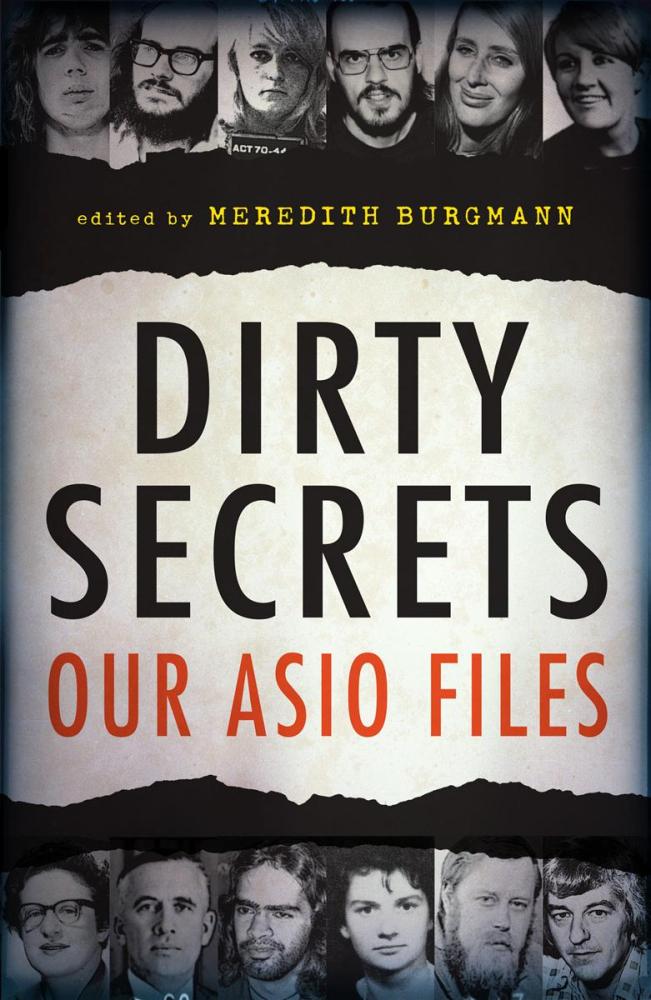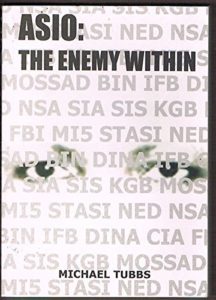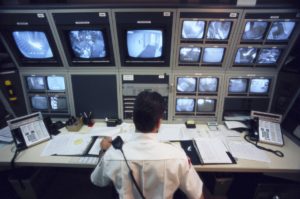?a_aid=asenseofplace123
If you think you’re under surveillance, you more than likely are. Australia has a long history of surveying its own citizens, well beyond that of comparable Western countries. Described by its critics as a secret parallel police force which has done enormous harm to Australian democracy, The Australian Security Intelligence Service is forever a source of fearful fascination for Australians.
Its new offices in Canberra are almost as imposing as Parliament House itself.
Since 9/11 the agency has been gifted billions of dollars. Yet its operations completely lack transparency.
In the last budget the Turnbull/Abbott government gifted them yet more hundreds of millions of dollars, yet it is a secret as to exactly how much!!
We’re not even allowed to know how much we’re funding the spies.
The public has long lost faith in their government, with each new day bringing yet more details of maladministration and malfeasance.
The agency has a long and shocking history of excessive surveillance of Australian citizens, and misuse of the information thus obtained, including against the nation’s journalists.
According to one critic, their modus operandi is simple: destroy the careers of anyone who crosses them.
The various personnel in this fascinating book all speak in astonishment of the enormous waste of public resources that went into their surveillance, and the often slipshod or inaccurate nature of the results.
Perhaps one classic from Dirty Secrets will suffice.
One of Australia’s most famous authors, Frank Hardy, the author of Power Without Glory – a highly political work originally self-published. Hardy was arrested and charged with criminal libel for a work which came to be regarded as one of the country’s greatest works of literature. He was later found not guilty, an outcome which ASIO did not take well. The agency continued to closely monitor him, and did their best to destroy him.
Hardy, despite working as a journalist throughout his colourful life, was often short of money. But he never stopped writing, never lost faith. And never stopped putting it to the dark face of conservative Australia.
In Hardy’s file an ASIO officer suggested he “put his pen aside” and get a job in a “basic industry where hordes of workers are employed in a disciplined fashion”.
In August of 1960 Frank Hardy is reported trying to borrow 75 pounds to publish a book: “He will never be a success.”
As David McKnight, author of one of the standard texts on the nation’s secretive agencies, Australia’s Spies and Their Secrets, writes in his introduction:
For more than 20 years the files of Australia’s internal security agency, the Australian Security Intelligence Organisation (ASIO) have slowly been coming to light. Individuals who have been under ASIO surveillance have been able to read what was said about them and historians have been able to piece together as he is secret operations during the Cold War. Nearly 10,000 of files are now publicly available at the National Archives of Australia in Canberra.
Reading an ASIO file is an unusual experience, as I can personally a firm. The file can evoke anger or amusement. A personal file can reawaken old memories, long forgotten. Most people who were the subject of ASIO’s attentions are bemused by The extraordinary effort and expense that led to tiny details being recorded and now revealed in the files. They are often shocked by the intrusiveness of the surveillance, which included placing informers within political groups or the use of telephone taps, as well as more prosaic methods such as copying birth certificates, immigration files for newspaper clippings.
ASIO files are also windows into the activities and assumptions of the organisation and the people who compiled them. It is important to remember that ASIO files were drawn up as internal working documents. They were never intended to be publicly released. The fact that the information in the files would never be tested in a court case meant all kinds of suspensions and speculation could be aired. As well, especially with files on people who are not dedicated members of the organised left, it is important not to assume that ASIO was not always consciously targeting particular individuals. Sometimes personal files were merely repositories of odd bits of information picked up during the surveillance of others.
As unusual as it was, it must be remember that ASIO was part of the traditional public service. Its internal correspondence is carefully formal, usually dry, and obsessive about detail. It operated according to the public services bureaucratic routines and it’s internal hierarchy. But because ASIO officers worked on a certain set of political assumptions, it’s files are unlike those of other government agencies. They are infused with an air of suspicion and distaste towards anything deemed subversive or ‘a threat to security’, sometimes a very elastic phrase. The language of ASIO files reflects a military ethos.
One of the remarkable aspects of ASIO’s files is how little we know about ASIO’s proactive operations. While the purpose of personal files and subject files is to gather useful information about security targets, the actual operations conducted from time to time that involved these targets remain a mystery. Its unraveling awaits a historian with tenacity and a great deal of time. We know these files are highly sensitive because of the extent of deletions.
Editor of Dirty Secrets: Our ASIO files, the well regarded Meredith Burgmann, was galvanised by the Vietnam War during her years as a student at Sydney University. She was one of the leaders of the anti-apartheid movement, infamously receiving a two-month gaol sentence for disrupting a Springbok rugby match in 1971. She taught industrial relations at Macquarie University for 18 years and was later a Labor Member of and President of the Legislative Council of NSW, that state’s Upper House.
Of this book, in itself a significant accomplishment, she writes: “In these days of increased intelligence powers, a ballooning national security budget, a giant new ASIO headquarters in Canberra, and endless discussion about WikiLeaks and the right to know, I wanted to look at the effect of spying on those who have been its targets.”






